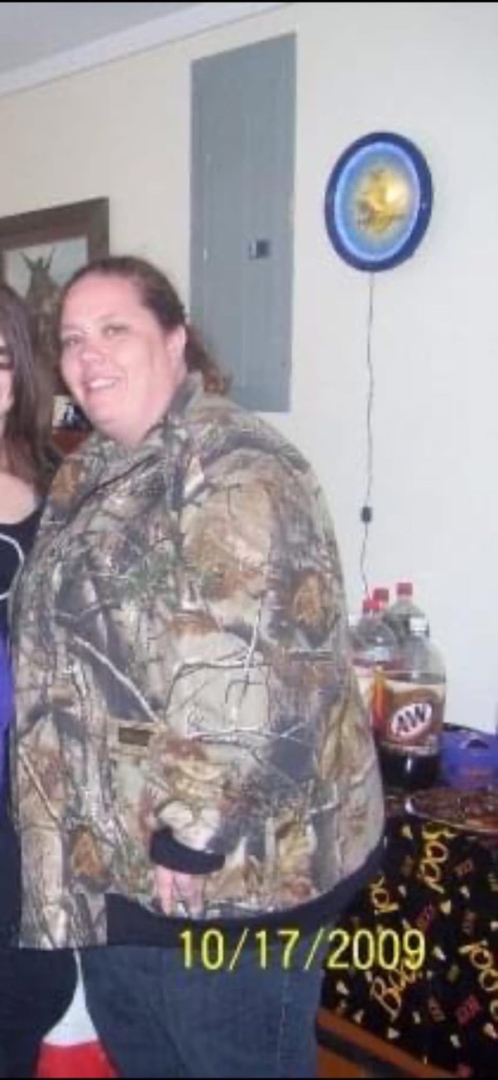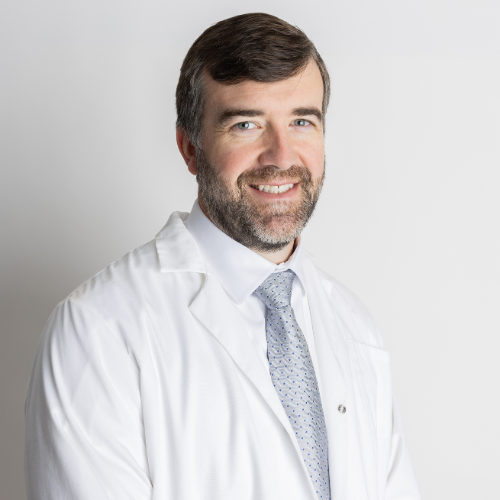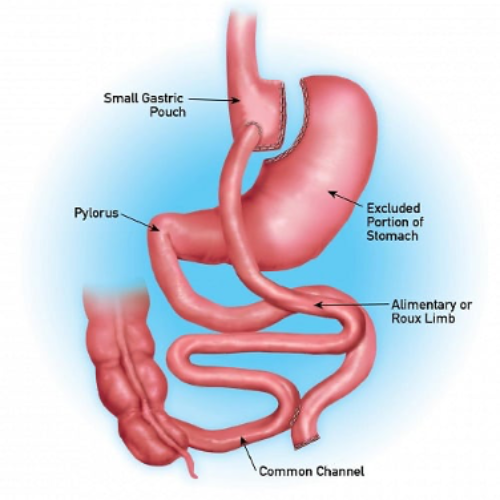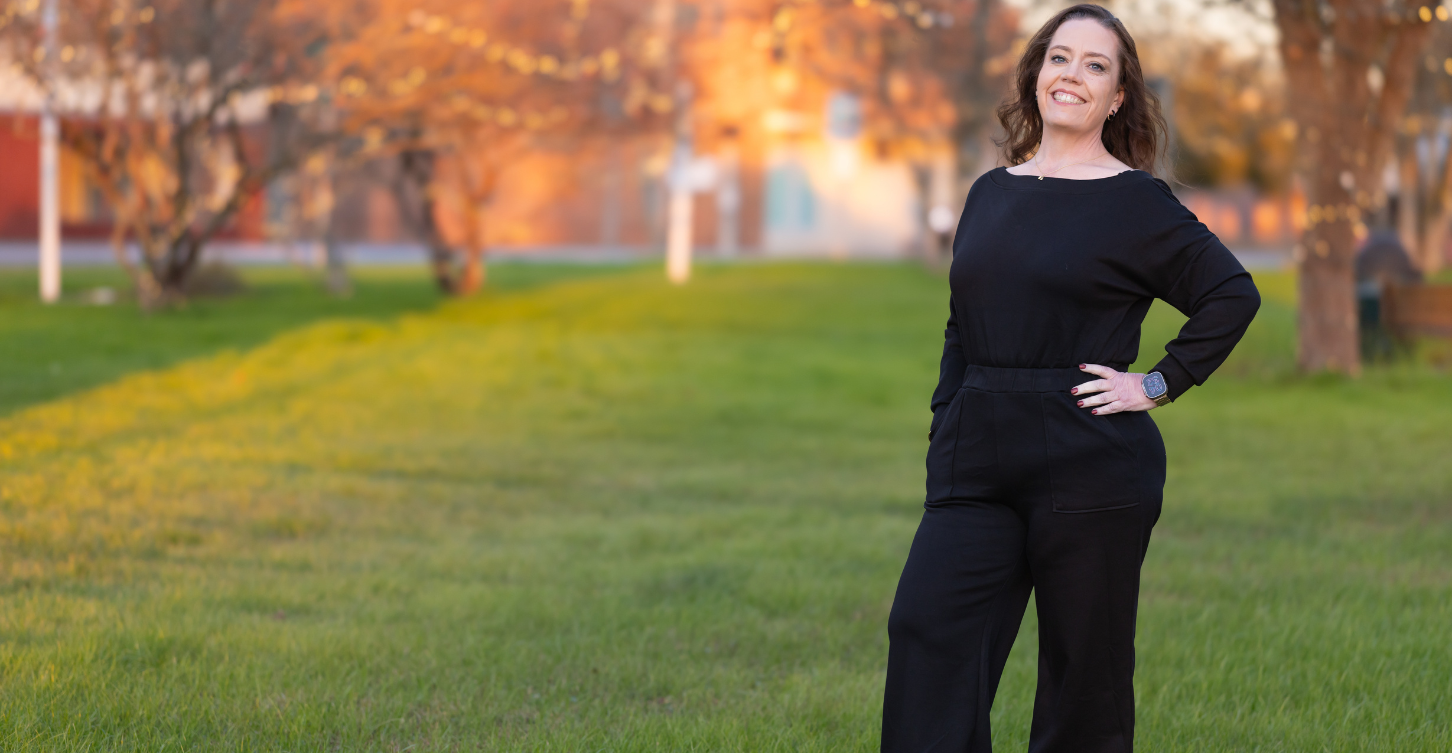‘Back to High School Weight’: TMH Helps Kelly Reach Her Goals
In 2009, Kelly Graham was wanting to have a third child, but at 321 pounds, she was facing difficulty conceiving. Kelly turned to a popular weight loss procedure– the gastric band or ‘lap band,’ which is an adjustable band inserted at the top of the stomach to reduce the amount of food a person can eat before they feel full. Following surgery, she lost just 66 pounds, weighing 255 at her lightest with the band. 
Like many others who received a gastric band, Kelly soon started experiencing issues with acid reflux, difficulties keeping food down and pain after eating. One side effect of a gastric band is the weakening of your esophagus over time, leading to complications with eating and reflux.
What was even worse was that the band didn’t really work for Kelly. The mom of two from Hosford continued to struggle with obesity and weight loss, and her weight fluctuated over the next few years. In 2023, at 289 pounds, Kelly decided it was time to have the band removed and chose the Bariatric Program at Tallahassee Memorial HealthCare (TMH) to help her.
Obesity As a Disease
For her pre-surgery clearance, Kelly met with dietitians, a mental health counselor, and Physician Assistant Greg Laffitte – all members of the bariatric team at TMH who help ensure each patient's long-lasting success after surgery.
As a board-certified Physician Assistant with an emphasis in bariatrics, Greg sees all patients during their surgery process. His role is to help patients understand that obesity is a chronic disease. To do this, he thoroughly analyzes their health and looks for any underlying cause of their obesity so patients have an educational foundation of their disease.
“The goal is for patients to look at obesity from a healthy perspective,” said Greg. “We’re not a weight loss clinic here - we manage the disease of obesity. It is a chronic, relapsing disease with a multifactorial diagnosis, presenting various challenges and involving both neural and behavioral factors.”
After completing her pre-surgery requirements, Kelly met with Joey Jarrard, MD, FACS, FASMBS, the Director of the Bariatric Program and fellowship-trained surgeon at TMH Physician Partners – General Surgery. 
Initially, Kelly only wanted to have her gastric band removed due to her reflux issues. After discussing her goals with Dr. Jarrard, though, he recommended she receive Roux-en-Y Gastric Bypass surgery – one of the most common weight loss surgeries in the US today— so she could reach her weight loss goals.
Gastric bypass surgery is a restrictive, malabsorptive bariatric procedure, best for patients who experience Gastroesophageal Reflux Disease (GERD). Initially, Kelly was hesitant to have the second surgery but was ready to eat without experiencing pain.
Time for Surgery
The following month, Dr. Jarrard performed the minimally-invasive surgery, assisted by the da Vinci surgical system.
During the procedure, he made four small incisions, each less than 8 millimeters in length, including one near the port of Kelly’s gastric band, and disconnected her gastric band. Then, he stapled off the upper portion of her stomach, creating a smaller pouch that remains connected to the esophagus, restricting the amount of food she can consume.
Next, he rerouted the digestive tract by connecting the newly formed stomach pouch to a portion of the small intestine, bypassing a section where the body typically absorbs most nutrients. This reduces calorie and nutrient absorption, supporting weight loss. The lower portion of the stomach remains connected to the intestine, allowing gastric juices to flow and aid digestion.
With the stomach now divided, acid from the lower portion cannot travel to the smaller pouch, significantly reducing the risk of GERD. Kelly’s surgery was a success.
Navigating Big Changes
The following day, Kelly was discharged and followed a post-surgery, full-liquid diet for two weeks before slowly incorporating solid food.
TMH’s comprehensive Bariatric Program does not end after surgery, as patients continue to see the team for help throughout their journey. Kelly meets with nutritionists and Greg every three months to review how the last few months have been, how she’s improved, what she’s struggling with and how she can mentally prepare for the next three months.
The team was incredibly helpful for Kelly. Post-surgery, she began to struggle emotionally as her changing body no longer felt like her own. Greg explained that it’s common to face mental challenges when undergoing such significant physical changes. Recognizing her struggles, Kelly decided to seek therapy to help with the adjustment.
“My experience with Mr. Greg has been wonderful. I love him,” said Kelly. “He is no-nonsense and tells you what to expect and what he expects of you. He doesn’t play around.”
Body and Mind Transformation
“I didn’t have a big weight loss goal in mind, but after talking to Mr. Greg, I thought – you know what? I’d like to be the weight I was when I graduated from high school, which was 165 pounds,” Kelly said.
A month after surgery, Kelly was losing weight but wanted to build muscle mass, so she started going to the gym near her work.
She turned to Tyler Hill, a master trainer and nutritionist, to help her feel more confident while working out at #Gymlife. At the start of her fitness journey, they focused on how to move her body and feel good, then slowly started to incorporate lifting weights to improve her range of movement.
“Usually, motivation is slim. You see people start and trickle off, but once Kelly got here and started learning more, she started taking off,” said Tyler. "I know she has down days, but she doesn’t let that stop her, and that’s what makes you a better person – your grit.”
Soon, exercise became a big part of Kelly’s life. She now wakes up every morning at 4 am and goes to the gym before working as an elementary school teacher and then as a server at a local restaurant.
Due to her weight loss, Kelly has changed her view on food. She no longer sees food as ‘everything’ but rather as a substance to help get the nutrition you need.
“The biggest adjustment was viewing myself the way I am now. I’ve always viewed myself as ‘the big girl,’ and I'm no longer that person,” said Kelly. “Now, I enjoy going to shop for clothes! I don’t hide in the changing room, crying whenever I try stuff on. I go and enjoy doing it.”
Initially, Kelly had the surgery because of her pain while eating, but she’s thankful for the ‘bonus’ benefits of having the energy and strength to play with her two beautiful granddaughters, hike without being out of breath and exercise. Kelly shared that she loves going to Disney World and can now do it without her feet hurting all day.
“I applaud Kelly,” said Dr. Jarrard. “From day one, she was very motivated to feel better and improve her health, and she did just that! She’s happy.”
Another bonus of the surgery: Kelly has lost 112 pounds and is only 12 pounds away from her goal weight!
Are you thinking about weight loss surgery? Get started with the Bariatric team at TMH to begin your journey.

